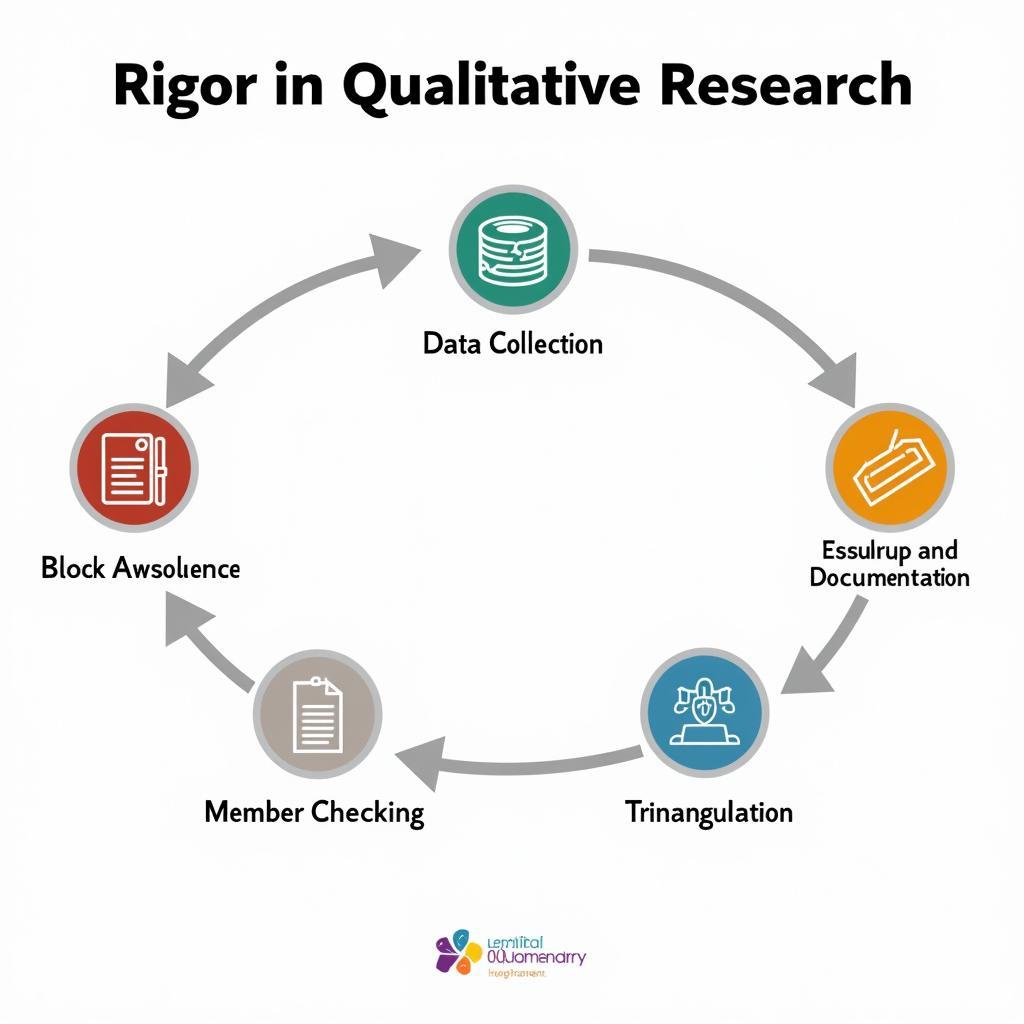Qualitative research instruments play a crucial role in gathering rich, descriptive data that goes beyond numbers and statistics. These tools help researchers explore complex social phenomena, understand individual perspectives, and uncover hidden meanings. Whether you’re studying paranormal experiences, cultural beliefs, or human behavior, choosing the right qualitative instruments is essential for successful research.
As researchers delving into the unknown, we often find ourselves relying on qualitative instruments to explore the nuances of paranormal phenomena. These tools allow us to gather rich, in-depth information that quantitative methods often miss. Understanding the strengths and weaknesses of various qualitative instruments is paramount to conducting effective research. For instance, comparing immigration research questions with questions used in Paranormal Research highlights the diverse applications of qualitative methods.
Choosing the Right Qualitative Research Instruments
Selecting appropriate qualitative instruments depends on your specific research questions and objectives. Commonly used instruments include interviews, focus groups, observations, and document analysis. Each offers unique advantages and disadvantages. Interviews, for example, allow for in-depth exploration of individual experiences, while focus groups provide insights into group dynamics and shared perspectives. Observations are invaluable for studying behavior in natural settings, while document analysis provides access to historical records and personal narratives.
Conducting Effective Interviews and Focus Groups
Interviews can be structured, semi-structured, or unstructured, offering varying levels of flexibility. Structured interviews use pre-determined questions, while unstructured interviews allow for more open-ended exploration. Semi-structured interviews combine both approaches. Similarly, inquiry and research utilize various methods to explore a topic. Focus groups require careful planning and moderation to ensure productive discussions. A skilled moderator can guide the conversation, encourage participation, and manage group dynamics.
The Importance of Observation and Document Analysis in Qualitative Research
Observation can be participant or non-participant. In participant observation, the researcher becomes immersed in the setting being studied, while in non-participant observation, the researcher remains detached. Document analysis involves examining various types of documents, including letters, diaries, photographs, and official records. This method can provide valuable historical context and insights into cultural beliefs and practices. Much like exploring practicum research, qualitative research emphasizes in-depth understanding.
 Qualitative Research: Observation and Document Analysis
Qualitative Research: Observation and Document Analysis
Analyzing Qualitative Data
Analyzing qualitative data involves identifying patterns, themes, and meanings within the collected data. This process often involves coding and categorizing data, as well as interpreting narratives and identifying key insights. The use of quantitative research instruments can sometimes complement qualitative research by offering a different lens through which to view data. It’s important to remember that qualitative analysis is an iterative process, requiring careful reflection and interpretation.
“Qualitative data analysis is like piecing together a puzzle,” says Dr. Amelia Blackwood, a renowned anthropologist specializing in paranormal investigations. “Each piece of data, whether it’s an interview transcript or a field observation note, contributes to a larger picture of understanding.”
Ensuring Rigor in Qualitative Research
Maintaining rigor in qualitative research involves ensuring trustworthiness, credibility, and transferability. Researchers should document their methods thoroughly, provide clear descriptions of their data analysis process, and acknowledge any potential biases. Quantitative research offers a means to confirm ideas through statistical analysis, while qualitative research aims for in-depth understanding and meaning. This helps to enhance the credibility and validity of the findings.
 Rigor in Qualitative Research
Rigor in Qualitative Research
In conclusion, Qualitative Instruments In Research are invaluable tools for exploring complex phenomena and gaining a deeper understanding of human experience. By carefully selecting and utilizing these instruments, researchers can unlock valuable insights and contribute to a richer understanding of the world around us, including the enigmatic realm of the paranormal. Understanding the nuances of these methods is essential for anyone embarking on a research journey.
“The beauty of qualitative research lies in its ability to capture the human element,” adds Dr. Blackwood. “It allows us to explore the ‘why’ behind the ‘what’, providing a more holistic and meaningful perspective.”
Need help with your research? Contact us! Phone: 0904826292, Email: research@gmail.com or visit us at No. 31, Alley 142/7, P. Phú Viên, Bồ Đề, Long Biên, Hà Nội, Việt Nam. We have a 24/7 customer support team.